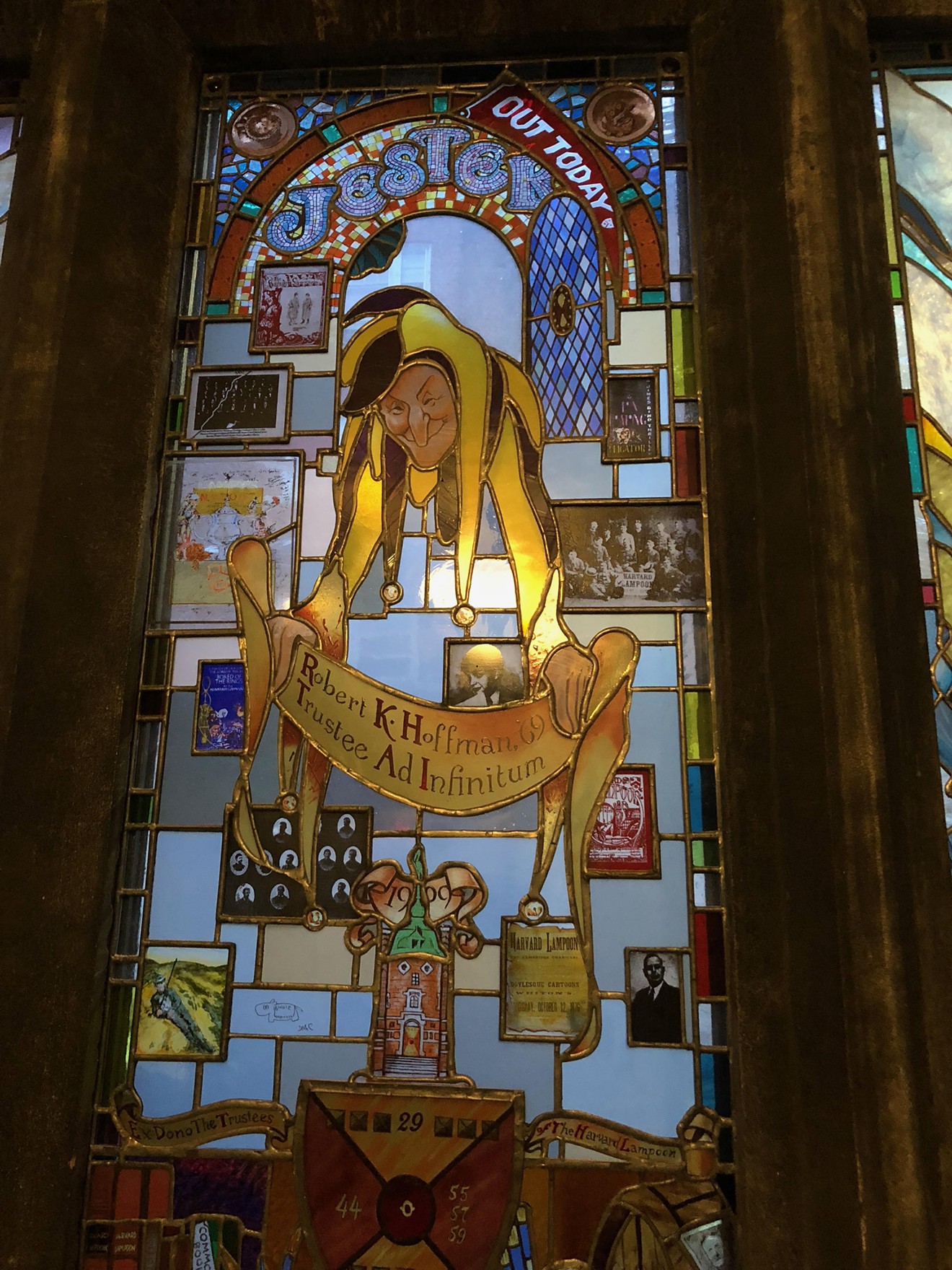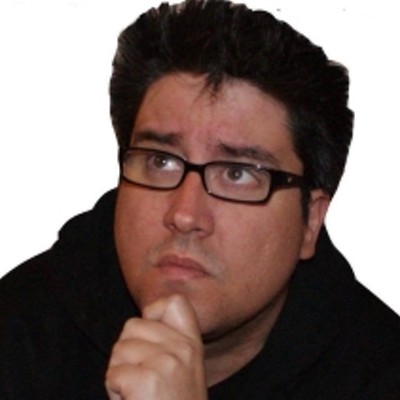The film's name comes from a line from Animal House and describes the Delta fraternity brothers' revenge plot after
As every Faber grad knows, "knowledge is good," so let us fill you in on the third man, Hoffman, who built the Coca-Cola Bottling Group with father Edmund and donated millions of dollars worth of art to the Dallas Museum of Art with wife Marguerite before he died in 2006. Hoffman's business acumen helped launched the groundbreaking humor magazine that flouted conventions and served as the foundation for some of America's comedy touchstones, films such as Animal House and Vacation, as well as TV shows like Saturday Night Live.
To be fair, Hoffman does make an appearance in the movie. The film's omnipotent narrator addresses the camera directly to explain that the movie isn't meant to be an exact retelling of the true story. Then he shows a list of "other things we changed for pacing, dramatic license or just because we felt like it." It includes the line, "There was a third founder of National Lampoon named Rob Hoffman."
"I can't say this strongly enough," says Beard, the humorist who met Hoffman and Kenney while working on the Harvard Lampoon and founded the National Lampoon magazine in 1969. "There is no National Lampoon without Robert Hoffman. Some would say the same thing about Doug Kenney, and some would say the same thing about me, but Robert is absolutely a critical part of the entire enterprise from the beginning going back to the Harvard Lampoon."
Hoffman wasn't just a contributor to the business model. He also had a unique sense of humor that helped drive the magazine.
"Robert was brilliant, dimensional, funny, alert, loving and the most wonderful man I have ever known," says his widow, Marguerite. "Besides his family, I think the Lampoon and the friends he made while working on the magazine meant more to him than anything. It was like he found his true self while helping manifest the talent of all his friends. He had a goofy streak, and that definitely came out in the humor that circled around the Lampoon."
Hoffman's mark on the publishing world started in the 1960s at the Harvard Lampoon, where he helped set up one of the student humor magazine's key funding models. Beard says the Harvard Lampoon started to gain attention in the publishing world when the magazine won a competition organized by Mademoiselle to run a parody of the women's magazine. Mademoiselle commissioned more parody issues, and magazine parodies turned into an annual tradition for the Harvard Lampoon.
"When I was at the Harvard Lampoon, one of the key moments came when Rob, who was the president of the Harvard Lampoon, cold-called Hugh Hefner and said he wanted to do a parody of Playboy," Beard says. "Five minutes later, the phone rings and it's Hef, and he wants very much for us to do a parody of Playboy. He not only offered to finance it — which wasn't necessary because"Time after time, particularly at the Harvard Lampoon while we were doing the parodies, many of these things were direct ideas of his or ideas of his that we improved." — Henry Beard
tweet this
Eric Rayman served as the Harvard Lampoon president in 1972 and worked under Hoffman as he helped to secure funding for the student humor magazine while Hoffman attended Harvard Business School. He remembers how the magazine parodies that became a signature staple of the Harvard Lampoon helped elevate the brand's trademark humor.
"What happened was we were watching TV in the Lampoon Castle, and [Cosmopolitan publisher] Helen Gurley Brown was on TV with Johnny Carson, and she said she was going to have the first male nude centerfold, and I remember that was the first time she said it was going to be Burt Reynolds," Rayman says. "So when we did the parody, we said we're going to do the second male nude centerfold. Then that summer, a group of us stayed in Cambridge and wrote a parody of Cosmopolitan, and we put Henry Kissinger in as the centerfold. We sold millions of copies and made a ton of money for the Harvard Lampoon."
Hoffman could also serve as a solid voice of reason in the midst of unbridled chaos. When the magazine's Life magazine parody proved to be less than successful, Beard and Kenney made some extra money with a novelized parody of J.R.R.
"Rob had the good sense to say, 'Let's send a letter to
Bored of the Rings and the magazine parodies became some of the Harvard Lampoon's biggest successes.
"They had done a Time parody, and it was very popular and successful, and they were standing in Harvard Square where they had a famous newsstand," Rayman says. "They watched people lining up to buy the Time parody, and Rob or Henry said we can do this every month. That's how I remember Rob saying they wanted to do a magazine."
Beard, Hoffman
The original deal gave the company 80 percent of ownership of the National Lampoon, a rule that Beard called
"Rob came up with a method that ... based on the profits the National Lampoon made, a multiple of those profits would be calculated for five years for a scheduled buyout of 15 percent," Beard says. "Every time they sort of defaulted on something, Rob would have them increase it."
National Lampoon was known for ridiculing the button-down, dressed-up world of the 1950s, but Hoffman gave its business machine credibility by dressing the part.
"Rob had a terrific sense of humor, but he was also a great businessman and a great dresser compared to everyone else," Rayman says. "He was more preppy, like sports jackets and white shirts, even in the '70s. He had a really good sense of humor. If you were having ... a meeting where you have budgets and insurance and enough money to make sure you have heat in the business, he could also have fun and could also be as funny as anybody else. He was also very sensitive to other people and could read a room really well. He could see the dynamic in the room and cut through it very quickly."
Hoffman's direction also helped shape the satiric tone that gave the magazine some of its most memorable moments.
"He was extremely alert, very funny and also, related to that, a good critical sense," Beard says. "Time after time, particularly at the Harvard Lampoon while we were doing the parodies, many of these things were direct ideas of his or ideas of his that we improved."
The first few issues of the National Lampoon struggled because of the art direction, but Hoffman suggested someone who could make art that supported the humor magazine. That led to the hiring of art director Michael C. Gross, a designer who later went to Hollywood and designed some of the most iconic images in movies, such as the famed "No Ghost" logo for the movie Ghostbusters. Gross' addition led to some of National Lampoon's iconic covers, like the Norman Rockwell parody for its Nostalgia issue and the infamous "If you don't buy this magazine, we'll kill this dog" cover for its Death issue.
"One of his big things was after the magazine started, we used this underground comic artist for our art director, and Rob said that we've got to do something about this," Beard says. "We talked to Matty, and he said there's this guy coming in tomorrow named Michael Gross who wants to be the new art director, and we hired him on the spot. It just shows how alert Robert was and how alert he was about magazine publishing."
Hoffman went back to Dallas after the magazine's launch to work in the soda business, but he continued to advise Beard and Kenney on the business side of the magazine after its popularity grew. When Kenney had a nervous breakdown, Beard says Hoffman was always available to listen."He worked as hard as hell to get women admitted to the Harvard Lampoon. He had a meeting with this dumb dean at Harvard, and he felt it was a matter not just of principle but intelligence not to exclude half of their audience." — Henry Beard
tweet this
"He would come back to town to see how things were going and check in," Beard says. "Doug had a nervous breakdown halfway through, and I was left to write the thing, and Rob was extremely supportive to help make things happen."
Hoffman also continued to serve on the board for Harvard Lampoon. Rayman says Hoffman's deal with Twenty-First Century Communications included a licensing agreement for use of the Harvard Lampoon's name, a deal that set up a tidy stream of income for the student publication when movies like Animal House and Vacation became blockbuster hits.
"He not only started the National Lampoon and made Doug and Henry a lot of money and made himself a lot of money, he cared enough about the Harvard Lampoon that he gave them a royalty on the name," Rayman says. "I learned so much from him. Even though I realize now he was only four years older, he was very mature. Even back in the '70s, when everyone had hair like everyone had in the [Netflix] movie, he was very clean-cut and played squash. I never remember him ever needing a haircut."
Beard and Rayman say Hoffman continued to work on securing the stability of the Harvard Lampoon until his death in 2006.
"He worked as hard as hell to get women admitted to the Harvard Lampoon," Beard says. "He had a meeting with this dumb dean at Harvard and he felt it was a matter not just of principle but intelligence not to exclude half of their audience. When they do the magazine now, the graduates don't go to law school. They go to Hollywood."
Hoffman's biggest contribution to the comedy and business world did more than
"He had a capacious mind that never stopped absorbing," she says. "He used his business mind to make lots of good things happen for lots of people."












